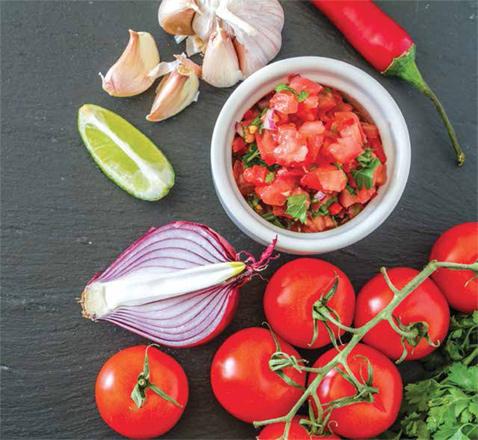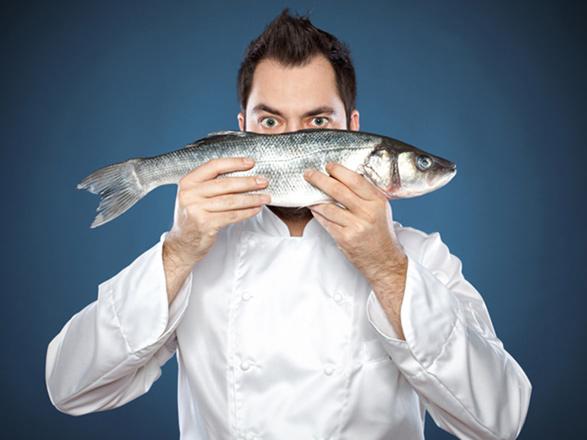You are here
Tips for a healthy prostate
By Ayah Murad , Family Flavours - Aug 30,2020 - Last updated at Aug 30,2020

Photo courtesy of Family Flavours magazine
Ayah Murad / Clinical Dietician
The prostate, the gland about the size of a walnut that surrounds the bladder and urethra, grows throughout a man’s life. With age, it’s important to maintain a healthy prostate. Eating a healthy balanced diet may reduce the risk of developing prostate problems.
An enlarged prostate gland (medically known as Benign Prostatic Pyperplasia or BPH) can cause uncomfortable urinary symptoms, such as blocking the flow of urine out of the bladder. It is common in men over 50 years old. It can also cause bladder, urinary tract or kidney problems.
Symptoms of BPH can include:
• Difficulty initiating urination
• Weak urination stream
• Dribbling at the end of urination
• The urge to urinate
• Feeling of fullness in the bladder due to incomplete urine emptying
Poor food choices can increase these symptoms and obesity is a risk factor for prostate enlargement. This is why it is important to watch out for weight gain, and, if you are carrying some extra weight, I recommend following a healthy diet. Healthier food choices can help, and I would like to share with you some tips to consider. In general, eating fruits and vegetables lead to great results. In the case of the prostate specifically, it is essential to cut down on red meat and poultry and boost your fruit and vegetable intake.
Red meat: I have talked about red meat and its effect in many previous articles. I have warned of its negative effect on the body, when consumed daily. In addition to these risks, research has found that daily consumption of red meat increases the risk of prostatic enlargement. Removing red meat from people’s diets has been found to help improve prostate health. Consider substituting red meat with oily fish instead, at least once a week. Oily fish such as salmon, mackerel, sardines or even tuna are rich in Omega 3 fatty acids. The latter help prevent and reduce inflammation within the body. Having white fish or seafood like oysters, calamari, shrimp or crab once or twice a week is also recommended as these foods are rich in zinc.
Fruits: Pomegranates, strawberries, blueberries, raspberries, blackberries and citrus fruits like oranges, lemons, limes and grapefruits are excellent sources of both antioxidants and vitamin C. This helps remove free radicals from the body and controls your body acidity level. Free radicals are the by-products of reactions that occur in the body. They can cause damage and disease over time. Low levels of antioxidants can affect our immune system negatively, leading to inflammation. When our body is more alkaline, we are less susceptible to inflammation, one of the key factors related to prostatic enlargement. So, eating acidic foods leads to a more alkaline environment in the body.
Vegetables: Sulphur-rich vegetables, such as cabbages, broccoli, bok-choy, cauliflower, onions and garlic are helpful to the immune system. They help fight inflammation and cancer as they are rich in antioxidants. This, in turn, promotes a healthier prostate, so I recommend adding them to your salads and side dishes.
Tomatoes are rich in lycopene, a red pigment known for its antioxidant activity. Cooked tomato-based soups and sauces, especially when mixed with olive oil or coconut butter, help release the lycopene and make it more readily available to the body. Our traditional dish of Alayet Bandora (fried tomato ) is mainly composed of tomatoes cooked with olive oil.
Ingredients for Alayet Bandora
3 cups deep red sweet tomatoes, finely chopped
1 tbsp coconut butter or 3 table spoons olive oil
saffron, turmeric
1 medium-size red onion
1 red chilli pepper
1 garlic clove, crushed
Dash of Himalayan salt and black pepper
Fresh parsley and pumpkin seeds for garnishing
Sauté onion, red chilli pepper and garlic in coconut butter or olive oil. Add tomatoes with a dash of salt and pepper and stir. Cover the pot on medium heat and stir every five minutes (total cooking time should be between 15 to 20 minutes). Garnish with fresh parsley and pumpkin seeds.
Spices: Turmeric, saffron, cloves, red chilli pepper and ginseng are loaded with antioxidants, which are anti-inflammatory and target cancer cells, especially the ones in the genitals. Many studies on the superantioxidant and pain reliever red chilli pepper (capsicum) found that it can help reduce prostate enlargement and control inflammation in general. I recommend marinating red chilli pepper (saffron, turmeric and cloves provide added benefits) in olive oil for two or more weeks.
Pumpkin seed and its oil play a major role in levelling hormones as it contains phytosterols, a compound thought to be responsible for reducing prostate enlargement. Pumpkin seeds are usually best used as preventive therapy (for those under 50) as it prevents the multiplication of prostate cells. Pumpkin seeds, like other nuts, are also loaded with zinc. In normal conditions, prostate function relies on optimal zinc levels. Zinc and omega-3 are both needed to balance testosterone and Dihydrotestosterone (DHT). For this reason, a handful of nuts, especially pumpkin seeds, two to three times a week can be helpful. Add them to your dishes, soups and salads.
What affects the prostate negatively?
• Caffeine increases the urge to urinate (it increases how much and how often). Reducing coffee, tea, chocolate, soda and energy drinks can help get rid of the most annoying symptom related to prostatic enlargement
• Salt, specifically sodium hidden in processed food, may increase urinary tract symptoms. Try to change the type of salt you consume to Himalayan as it is lower in sodium
• Medication: Some medications elevate symptoms and lead to discomfort, such as antihistamines, nasal decongestants and diuretics. Consult your doctor for the most suitable replacement medication for your condition
Finally, I recommend limiting your fluid intake to two litres each day, including herbal teas, soups or water. Mixing one cup of water with Arabic gum or rosemary can be helpful as well. Some supplements that can be helpful include probiotics, saw palmetto, zinc, ginseng, turmeric and selenium.
Simple lifestyle and dietary changes, as well as some supplementation, can help manage symptoms. It also means avoiding other types of foods that are not good for the prostate. However, if these changes are not effective, you need to consult your doctor, as there are also medications or surgical procedures that can be effective in reducing the size of the prostate or its symptoms.
Reprinted with permission from Family Flavours magazine
Related Articles
Clinical Dietician Some of our poor food choices have the ability to reduce testosterone, diminish sex drive, reduce sensitivity, alter
A sign of a healthy digestive system is saliva production; once you feel your mouth is dry which indicates you probably lack digestive enzymes, your body will take longer to absorb vitamins and minerals
Like many other health-related topics, prostate cancer comes with a lot of misinformation which can often lead to unnecessary fear, confusion and even delays in seeking appropriate treatment.














